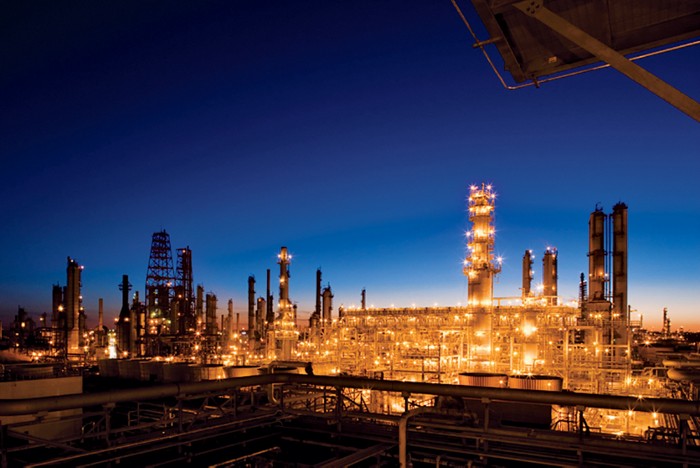Advertisement
Grab your lab coat. Let's get started
Welcome!
Welcome!
Create an account below to get 6 C&EN articles per month, receive newsletters and more - all free.
It seems this is your first time logging in online. Please enter the following information to continue.
As an ACS member you automatically get access to this site. All we need is few more details to create your reading experience.
Not you? Sign in with a different account.
Not you? Sign in with a different account.
ERROR 1
ERROR 1
ERROR 2
ERROR 2
ERROR 2
ERROR 2
ERROR 2
Password and Confirm password must match.
If you have an ACS member number, please enter it here so we can link this account to your membership. (optional)
ERROR 2
ACS values your privacy. By submitting your information, you are gaining access to C&EN and subscribing to our weekly newsletter. We use the information you provide to make your reading experience better, and we will never sell your data to third party members.
Fossil Fuels
LyondellBasell to close its Houston refinery
Century-old facility was losing money
by Alexander H. Tullo
April 27, 2022
| A version of this story appeared in
Volume 100, Issue 15

In a move that will cut carbon dioxide emissions and focus the company on petrochemicals and plastics, LyondellBasell Industries will close its Houston refinery by the end of next year.
The century-old refinery has the capacity to refine 268,000 barrels per day of heavy, high-sulfur crude oil into fuels, chemical feedstocks, and aromatics. The refining business generated $7.2 billion in 2021 sales, 15.5% of Lyondell’s total for the year. It employs 1,200 workers and contractors.
Still, the refining operation has lost money for the past three years. Lyondell announced in September that the complex was for sale and says it would still consider a transaction. The firm took an impairment charge of $624 million in 2021 related to the sale decision.
The refinery was built by Sinclair Refining in 1918 and has been with Lyondell since the company spun off from Atlantic Richfield in 1989. For more than a decade, it operated as a joint venture with the Venezuelan state oil company PDVSA, which supplied it with heavy Venezuelan crude. Lyondell bought out PDVSA’s stake in 2006 for $2.1 billion.
“While this is a difficult decision, our exit of the refining business advances the company’s decarbonization goals, and the site’s prime location gives us more options for advancing our future strategic objectives, including circularity,” Lyondell interim CEO Ken Lane says in a statement.
Last year, the company pledged to achieve net-zero carbon emissions by 2050. It also plans a 30% reduction in scope 1 and 2 carbon emissions—those related to its operations and energy purchases—by 2030, from a 2020 baseline. According to data from Lyondell’s carbon disclosure report, the Houston refinery generated about 14% of the firm’s overall scope 1 and 2 emissions.
In addition, the company has been launching circularity initiatives in plastic waste. For example, a pilot plant in Ferrara, Italy, is testing its technology for the chemical recycling of waste plastics.


Join the conversation
Contact the reporter
Submit a Letter to the Editor for publication
Engage with us on Twitter